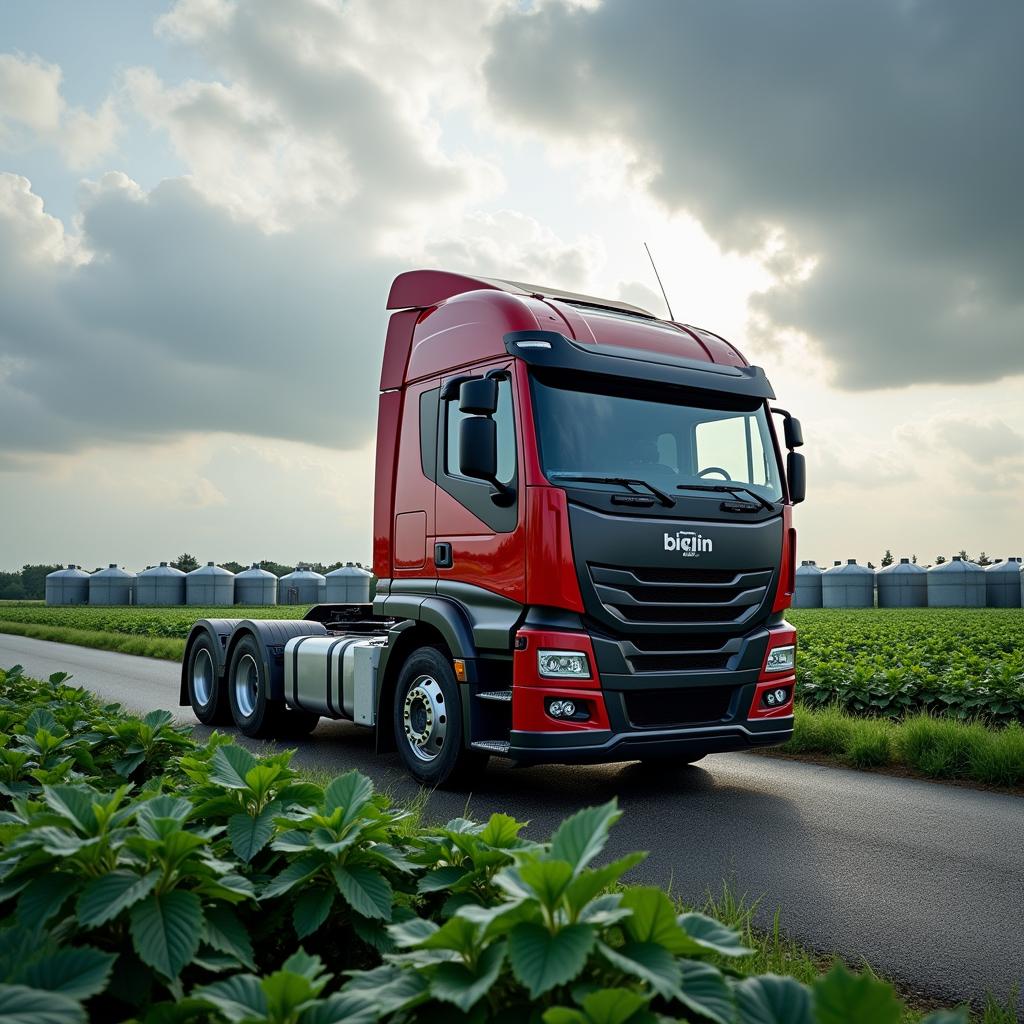Biofuel Options Revolutionizing the Trucking Industry
The transportation industry is experiencing a remarkable transformation as innovative biofuel options for trucking emerge as viable alternatives to traditional diesel fuel. With growing environmental concerns and the push for sustainable solutions, fleet operators and trucking companies are increasingly turning to biofuels to reduce their carbon footprint while maintaining operational efficiency. This comprehensive guide explores the latest developments in biofuel technology and how they’re reshaping the future of trucking.
Understanding Biofuels in Commercial Transportation
Biofuels represent a diverse category of renewable fuels derived from organic materials, offering trucking companies sustainable alternatives to conventional petroleum-based fuels. These eco-friendly options have evolved significantly over the past decade, with new technologies making them more efficient and cost-effective than ever before.
According to the Environmental Protection Agency, biofuels can reduce greenhouse gas emissions by up to 86% compared to traditional diesel fuel. This substantial reduction makes them an attractive option for companies looking to meet increasingly stringent environmental regulations while maintaining their competitive edge.
Types of Biofuels Currently Available
- Biodiesel (B20 and B100)
- Renewable Diesel
- Ethanol Blends
- Biomethane/Renewable Natural Gas
The Rise of Biodiesel in Commercial Fleets
Biodiesel has emerged as one of the most popular biofuel options in the trucking industry. This renewable fuel is produced from various feedstocks, including:
- Soybean oil
- Used cooking oil
- Animal fats
- Other renewable sources
The most common biodiesel blend, B20 (20% biodiesel, 80% petroleum diesel), offers an excellent balance between performance and environmental benefits. Many fleet operators appreciate that B20 requires minimal modifications to existing diesel engines, making it an accessible entry point into sustainable fuel alternatives.
Benefits of Biodiesel Implementation
Environmental Impact:
– Reduced carbon emissions
– Lower particulate matter
– Decreased sulfur emissions
Operational Advantages:
– Better engine lubricity
– Similar fuel economy to conventional diesel
– Compatible with existing infrastructure
Renewable Diesel: The Next Generation Solution
Renewable diesel represents one of the most promising biofuel options for trucking companies seeking to maximize sustainability without compromising performance. Unlike biodiesel, renewable diesel is chemically identical to petroleum diesel, making it a “drop-in” replacement that requires no engine modifications or special handling.
Key Advantages of Renewable Diesel
- Higher cetane number for better engine performance
- Superior cold weather performance compared to biodiesel
- Reduced maintenance requirements
- Complete compatibility with existing diesel engines
A National Renewable Energy Laboratory study shows that renewable diesel can reduce greenhouse gas emissions by up to 50-80% compared to conventional diesel fuel.
Natural Gas and Biomethane Solutions
Renewable natural gas (RNG) or biomethane offers another compelling alternative for trucking fleets. Produced from organic waste sources, RNG provides a circular economy solution that can actually achieve negative carbon emissions in some cases.
Implementation Considerations
Infrastructure Requirements:
– Specialized fueling stations
– Modified or purpose-built vehicles
– Training for operators and maintenance staff
Economic Factors:
– Initial investment in equipment
– Potential fuel cost savings
– Available government incentives
Economic Implications and ROI
When evaluating biofuel options for trucking operations, companies must consider various financial factors:
Initial Investment Considerations
- Vehicle modifications or new vehicle purchases
- Fueling infrastructure development
- Staff training and certification
- Maintenance facility upgrades
Long-term Financial Benefits
- Reduced fuel costs
- Tax incentives and credits
- Lower maintenance expenses
- Improved corporate image and marketing opportunities
Implementation Strategies and Best Practices
Successfully transitioning to biofuels requires careful planning and execution. Here’s a comprehensive approach to implementation:
- Assessment Phase
- Evaluate current fleet requirements
- Analyze available biofuel options
- Calculate potential ROI
- Planning Phase
- Develop implementation timeline
- Secure funding and resources
- Establish partnerships with suppliers
- Execution Phase
- Begin pilot program
- Monitor performance metrics
- Adjust strategies as needed
Training and Support Requirements
Successful implementation depends heavily on proper training and support systems. Key areas include:
- Driver education programs
- Maintenance staff certification
- Safety protocol updates
- Performance monitoring systems
Future Trends and Developments
The biofuel landscape continues to evolve, with several emerging trends shaping the future of trucking:
Emerging Technologies:
– Advanced feedstock processing
– Improved fuel efficiency
– Enhanced storage solutions
– Innovative distribution systems
Market Development:
– Expanding infrastructure
– Growing supplier networks
– Increasing government support
– Rising consumer demand for sustainable shipping
Conclusion
The transition to biofuel options in the trucking industry represents a crucial step toward a more sustainable future in transportation. With various options available, from biodiesel to renewable diesel and biomethane, companies can choose the solution that best fits their operational needs while contributing to environmental conservation.
As the industry continues to evolve, staying informed about the latest developments in biofuel technology and implementation strategies is essential. Whether you’re considering a switch to biofuels or looking to optimize your current alternative fuel program, expert guidance can make the transition smoother and more successful.
Ready to explore how biofuel options can benefit your trucking operation? Contact our team of specialists at +1 206-337-4787 for a personalized consultation. Our experts can help you evaluate your options, develop an implementation strategy, and maximize the return on your sustainable fuel investment. Take the first step toward a greener, more efficient future for your fleet today.







